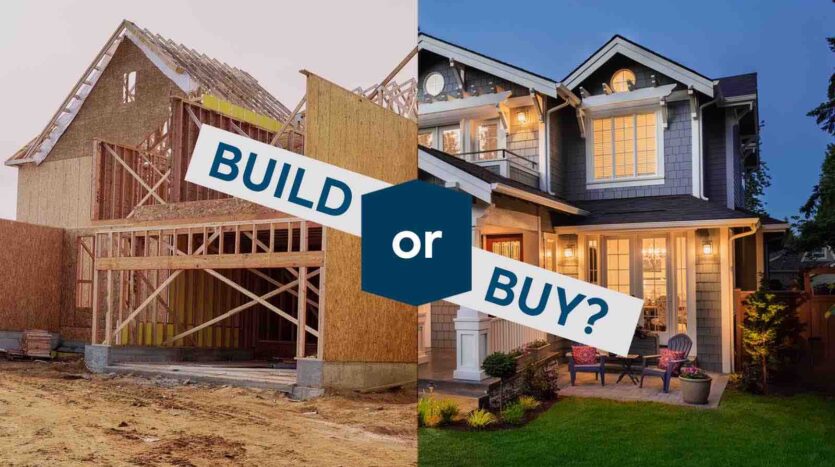Is It Better to Build or Buy Property in Nigeria? A Cost Comparison
Nigeria’s real estate market is booming, with both locals and foreigners increasingly investing in property. But one pressing question keeps coming up: Is it better to build or buy property in Nigeria? This decision can impact everything from upfront costs to long-term financial benefits. This guide breaks down each option, exploring the pros, cons, and costs involved, so you can make an informed choice.
Overview of Nigeria’s Real Estate Market
Nigeria’s real estate market is thriving, with a growing demand for housing and commercial spaces driven by rapid urbanization, a growing middle class, and an influx of both local and foreign investors. However, acquiring property in Nigeria has unique challenges, including land rights issues and fluctuating costs, especially in urban centers like Lagos, Abuja, and Port Harcourt.
Property Types in Nigeria
In Nigeria, properties are generally classified into:
- Residential properties: Homes, apartments, duplexes, and townhouses for personal living.
- Commercial properties: Buildings for business purposes, such as offices, warehouses, and shopping complexes.
Understanding the property type is crucial, as costs and requirements differ significantly between residential and commercial properties.
The Cost of Building Property in Nigeria
Building a property from the ground up can give you control over design, quality, and layout. Here’s a breakdown of typical costs involved:
1. Land Acquisition
Price Range: Land prices vary widely by location, with prices in Lagos and Abuja significantly higher. Land in central urban areas can cost upwards of ₦50 million per plot, while less developed areas may offer land for ₦500,000 to ₦5 million per plot.
2. Construction Materials
Price Range: Essential materials like cement, iron rods, tiles, and paint can contribute up to 60% of total building costs. Construction costs average between ₦30,000 to ₦70,000 per square meter, with variations depending on quality and location.
3. Labor Costs
Price Range: Labor costs also vary, with skilled workers like masons, plumbers, and electricians generally commanding higher wages in larger cities.
4. Permits and Fees
Typical Costs: Permits, title deeds, and surveys can add between 10% and 20% to the total cost of land and construction.
5. Utilities and Infrastructure Setup
In areas without access to municipal services, setting up utilities like water, electricity, and waste disposal can become costly.
The Cost of Buying Property in Nigeria
Buying an existing property offers convenience and a ready-to-move-in option. Here’s a look at typical expenses:
1. Property Purchase Price
- Factors Influencing Price: Property prices vary based on location, size, and type. Popular locations like Lagos Island and Ikoyi have some of the highest prices in the country.
- Price Range: Residential apartments can cost between ₦20 million and ₦300 million, while houses may go from ₦50 million to over ₦500 million.
2. Legal and Transaction Fees
- Title Transfers and Deeds: You’ll need to pay for title transfers, deeds, and other legal documentation.
- Estimated Costs: Legal and transaction fees can add up to 5% to 10% of the property’s price.
3. Repair and Renovation Costs
- Condition of Property: Older properties may need repairs or upgrades, and renovation costs vary based on property age and quality.
- Typical Cost Range: Minor renovations might cost between ₦500,000 and ₦5 million, depending on the extent of repairs.
Pros of Building a Property
- Customization: Allows you to tailor the property to your taste, layout, and functional needs.
- Lower Initial Cost (in some cases): Building can be more affordable than buying in certain areas, especially in regions where land is less expensive.
- New Property Benefits: Newer construction often means fewer maintenance issues in the early years.
- Potential for Higher Long-Term Value: Custom builds can add to a property’s resale value if done well.
Cons of Building a Property
- Time-Intensive: Building a property from scratch takes time, potentially several months or even over a year.
- Cost Fluctuations: Material and labor costs can change, causing unexpected expenses.
- Need for Close Supervision: To ensure quality and prevent fraud, close supervision of building projects is often necessary.
- Risk of Delays: Factors like bad weather, supply shortages, and labor availability can cause delays and add to cost.
- Project Management Stress: Managing a construction project can be stressful and requires oversight to ensure quality and timely completion.
- Possible Infrastructure Limitations: In undeveloped areas, you may face additional costs to establish access to essential utilities.
Pros of Buying a Property
- Faster Acquisition: Purchasing an existing property is often faster than building, with no construction delays.
- Immediate Access: You can start using or renting out the property as soon as the transaction is complete.
- Less Initial Hassle: Buying reduces the need to oversee the construction process, making it ideal for people with busy schedules.
- Established Infrastructure: Buying in urban areas means access to amenities like roads, schools, and hospitals.
Cons of Buying a Property
- Higher Upfront Cost: Buying in high-demand areas can be expensive due to market-driven property values.
- Limited Customization: Unlike building, an existing property may not meet all your preferences or needs.
- Potential for Hidden Repair Costs: Older properties can have hidden issues, leading to unexpected repair expenses.
Factors Influencing Your Decision
Consider factors like your budget, timeline, personal preferences, and whether you’re looking for a home or an investment property. Building is usually more time-consuming but offers customization, while buying is faster and less complex but limits design choices.
To simplify your decision, here’s a quick comparison of the pros and cons of each option:
| Aspect | Building Property | Buying Property |
|---|---|---|
| Pros | Customizable design and layout | Quick and ready to move into or rent out |
| Potentially lower cost in some areas | No project management required | |
| New, modern construction | Established infrastructure | |
| Cons | Time-consuming (up to a year or more) | High upfront cost, especially in cities |
| Requires close supervision | Limited design flexibility | |
| Uncertain costs due to price changes | May require renovations | |
| Overall Cost | ₦30 million to over ₦100 million | ₦50 million to over ₦500 million |
Hidden Costs to Consider in Building and Buying
Hidden costs in both building and buying include:
- Taxes and Levies: Property taxes, value-added tax (VAT), and local levies.
- Unexpected Repairs: Older properties may require repairs that aren’t apparent during a quick inspection.
- Ongoing Maintenance: Both new and existing properties need upkeep, with older homes typically requiring more.
The Role of Location in Cost and Value
Location plays a significant role in property prices. Urban areas have higher prices but offer conveniences like public utilities, while rural or less populated areas are more affordable but may lack amenities. Choosing a location that aligns with your long-term goals is key.
Location affects not only the initial cost but also the property’s long-term value. Prime areas like Lagos and Abuja have high prices but also higher potential for appreciation, while less developed regions may offer lower costs with slower growth.
Financing Options for Property Investment
In Nigeria, there are several options for financing property:
- Mortgage Loans: Available through commercial banks but often require a down payment of 20% to 40%.
- Personal Savings and Cooperative Loans: Some opt for personal savings or access loans through cooperatives or credit unions with lower interest rates.
- Government Housing Programs: Occasionally, government programs offer financing to make housing more accessible.
Legal Aspects of Building and Buying
Understanding property rights is essential to avoid land disputes or fraud. It’s critical to ensure that:
- Land Titles are Clear: Conduct thorough title searches and verify ownership with local authorities.
- Permits and Approvals are in Place: For building, acquire necessary permits and ensure compliance with zoning regulations.
Hiring a real estate lawyer with expertise in real estate transactions helps avoid fraud and ensures clear ownership.
Tips to Reduce Costs When You Build or Buy Property
- Negotiate: Whether building or buying, negotiate prices for land, labor, and materials to get the best deal.
- Hire Trusted Professionals: Quality builders and real estate agents can help avoid costly mistakes.
- Buy in Up-and-Coming Areas: Investing in areas poised for growth can lead to long-term savings and better returns.
Market Risks to Be Aware of
- Price Volatility: Material and property prices can be unpredictable, making it difficult to budget accurately.
- Inflation: High inflation rates can erode the value of investments.
- Title and Ownership Issues: Property rights disputes are common, emphasizing the importance of thorough title checks.
Conclusion
Deciding between building and buying property in Nigeria involves weighing costs, convenience, and future value. Building offers customization and may save on costs, while buying provides immediate access to a finished property, often in a prime location. Both choices require careful consideration of budget, timelines, and your specific needs.
If you’re ready to find your dream home or make a smart investment, we’re here for you! Contact us today to discover how we can help you with all your real estate needs. Let’s turn your dreams into reality together!



